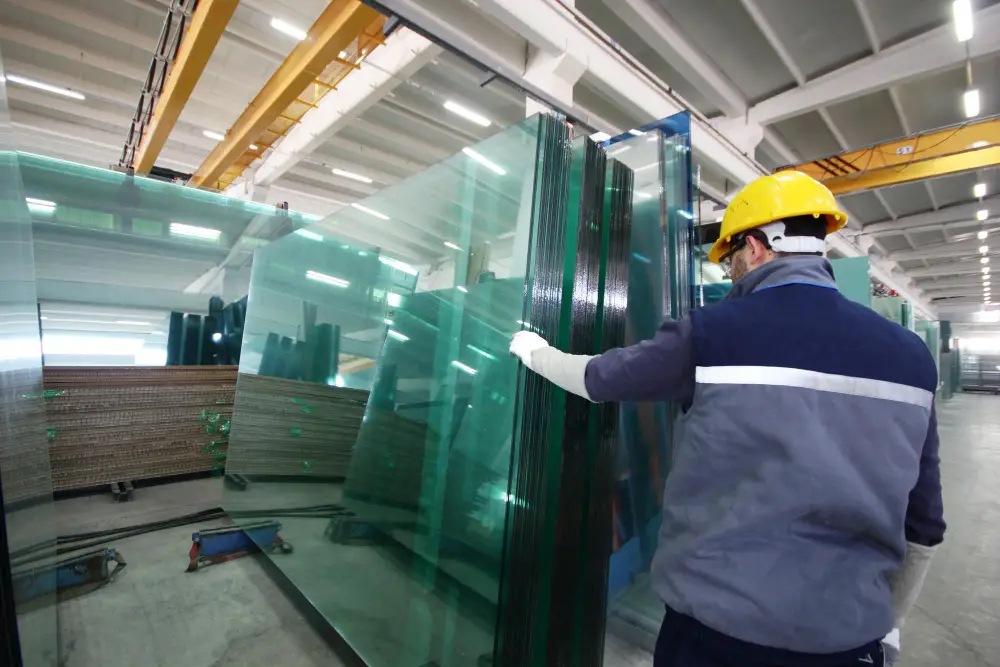Recycling glass is a critical component of sustainable living, significantly reducing waste and conserving natural resources.
However, not all glass is created equal, especially when it comes to recycling. Window glass, or flat plate glass, stands out as distinct from other types of glass, necessitating specialized recycling processes.
This article explores the main sources of recycled glass and the innovative applications that breathe new life into these materials, with a focus on the unique challenges and solutions associated with recycling window glass.
Sources of Recycled Glass

The primary sources of recycled glass are varied, encompassing container glass, flat glass, specialty glass, and industrial glass. Container glass, which includes bottles and jars, constitutes the most common source of recycled glass.
These items are prevalent in everyday life, making them readily available for recycling processes. Flat glass, which comes from windows and automotive glass, is another significant source.
Construction and demolition projects often generate large quantities of flat glass, while automotive glass recycling includes windows and windshields from vehicles. Speciality glass, such as glassware and screens from electronic devices, also contributes to the recycled glass inventory.
The Recycling Process
Window glass presents unique challenges in the recycling process due to its different composition and melting point compared to other types of glass. This distinction means that window glass cannot be mixed with general glass recycling and requires a separate recycling stream.
The required properties of window glass make it relatively difficult to reprocess flat plate glass into new panes for windows, although it is becoming increasingly practical. Glass panes can be directly reused provided they are of the right size and type.
The Methods of Window Glass Recycling

Two primary methods are employed to recycle window glass effectively. Firstly, glass can be melted down or ground up and reconstituted into new glass products.
Secondly, the glass can be ground into a fine powder and utilized as a bulking agent in cement and concrete, enhancing these materials’ strength and sustainability.
The Use of Recycled Glass
Recycled glass finds numerous applications across various industries, contributing to environmental conservation and resource efficiency.
In container manufacturing, recycled glass is melted and reformed into new bottles and jars, reducing the need for raw materials and energy consumption. Simple glass items like table tops, wipeboards, kitchenware and plates are perfect applications for recycled glass.
The construction industry benefits from recycled glass used as an aggregate for concrete and asphalt, where ground glass serves as a partial replacement for sand and gravel. Glassphalt, which is asphalt mixed with crushed glass, offers a durable and eco-friendly alternative for paving roads. Additionally, recycled glass as a pozzolanic material improves the durability and sustainability of cement and concrete.
The insulation materials industry also utilizes recycled glass extensively. Fiberglass insulation, a key component in energy-efficient buildings, is produced using significant amounts of recycled glass. Decorative applications of recycled glass are equally important, with the material being used to create visually appealing tiles, countertops, and artistic projects such as sculptures and mosaics.
Landscaping applications include using ground glass as mulch, adding a decorative touch to gardens and landscapes. Furthermore, recycled glass serves as an effective and sustainable solution in water filtration systems, where crushed glass is used as an alternative to sand.
Requirements of Recycling Window Glass
Understanding the unique requirements of recycling window glass is essential for creating sustainable practices in the construction and home improvement industries. Homeowners, designers, and enthusiasts who embrace these sustainable solutions not only support environmental conservation but also contribute to the development of stronger, more durable materials.
Recycling glass, particularly window glass, plays a vital role in promoting sustainability and innovation. By staying informed and inspired, we can all play a part in fostering a greener future. Whether planning a renovation or making eco-friendly choices, consider the impact of recycling glass and the vast possibilities it opens for creating a more sustainable world.
Recap




